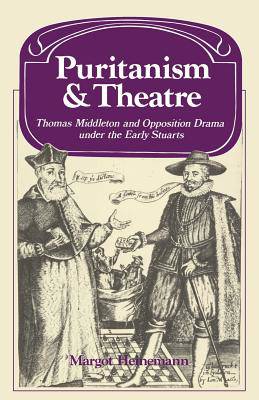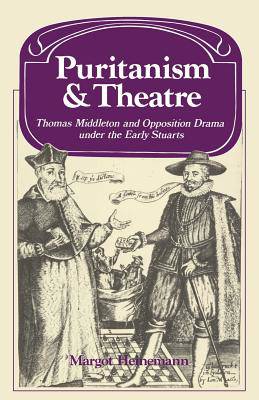
- Afhalen na 1 uur in een winkel met voorraad
- Gratis thuislevering in België vanaf € 30
- Ruim aanbod met 7 miljoen producten
- Afhalen na 1 uur in een winkel met voorraad
- Gratis thuislevering in België vanaf € 30
- Ruim aanbod met 7 miljoen producten
Zoeken
€ 86,45
+ 172 punten
Omschrijving
The closing of the theatres by Parliament in 1642 is perhaps the best-known fact in the history of English drama. As the Parliamentary Puritans were then in power, it is easy to assume that all opponents of the theatre were Puritans, and that all Puritans were hostile to the drama. The reality was more interesting and more complicated. Margot Heinemann looks at Thomas Middleton's work in relation to the society and social movements of his time, and traces the connections this work may have had with radical, Parliamentarian or Puritan groups or movements. In the light of the recent work of seventeenth-century historians we can no longer see these complex opposition movements as uniformly anti-theatre or anti-dramatist. The book suggests fresh meanings and implications in Middleton's own writings, and helps towards rethinking the place of drama in the changing life of early Stuart England.
Specificaties
Betrokkenen
- Auteur(s):
- Uitgeverij:
Inhoud
- Aantal bladzijden:
- 312
- Taal:
- Engels
- Reeks:
Eigenschappen
- Productcode (EAN):
- 9780521270526
- Verschijningsdatum:
- 29/10/1982
- Uitvoering:
- Paperback
- Formaat:
- Trade paperback (VS)
- Afmetingen:
- 140 mm x 216 mm
- Gewicht:
- 399 g

Alleen bij Standaard Boekhandel
+ 172 punten op je klantenkaart van Standaard Boekhandel
Beoordelingen
We publiceren alleen reviews die voldoen aan de voorwaarden voor reviews. Bekijk onze voorwaarden voor reviews.











